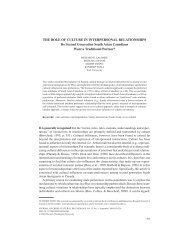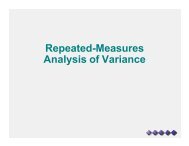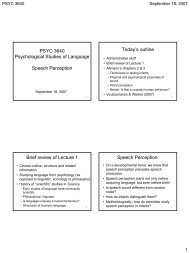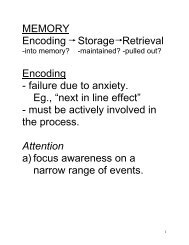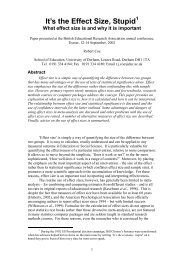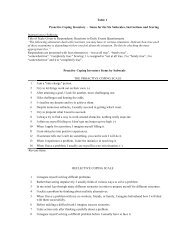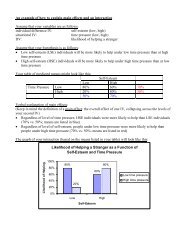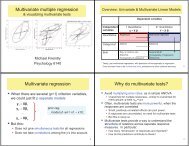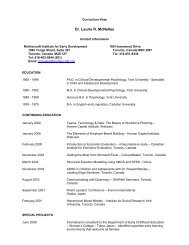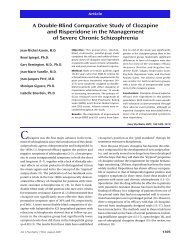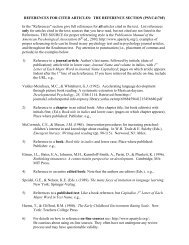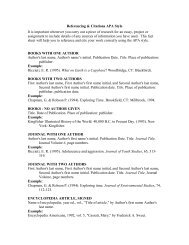The Drama of the Gifted Child (The Search for the True Self)
The Drama of the Gifted Child (The Search for the True Self)
The Drama of the Gifted Child (The Search for the True Self)
You also want an ePaper? Increase the reach of your titles
YUMPU automatically turns print PDFs into web optimized ePapers that Google loves.
dramas, nor pangs <strong>of</strong> conscience when desire has passed:<br />
"You pay and are free!" Even (and especially) <strong>the</strong> humiliation<br />
that such an encounter also involves <strong>for</strong> <strong>the</strong> client can<br />
increase stimulation—but that is less willingly mentioned.*<br />
<strong>The</strong> humiliation, self-disgust, and self-contempt are intrapsychic<br />
reflections <strong>of</strong> <strong>the</strong> primary objects' contempt and,<br />
through <strong>the</strong> compulsion to repeat, <strong>the</strong>y produce <strong>the</strong> same<br />
tragic conditions <strong>for</strong> pleasure.<br />
Perversion is a borderline case, but gives us an understanding<br />
that is valid <strong>for</strong> <strong>the</strong> treatment <strong>of</strong> o<strong>the</strong>r disorders,<br />
namely, understanding <strong>of</strong> <strong>the</strong> great importance to be attached<br />
to unconscious, introjected contempt.<br />
What is unconscious cannot be abolished by proclamation<br />
or prohibition. One can, however, develop sensitivity<br />
toward recognizing it and can experience it consciously,<br />
and thus gain control over it. A mo<strong>the</strong>r can have <strong>the</strong> best<br />
intentions to respect her child and yet be unable to do<br />
so, so long as she does not realize what deep shame she<br />
causes him with an ironic remark, intended only to cover<br />
her own uncertainty. Indeed, she cannot be aware <strong>of</strong> how<br />
deeply humiliated, despised, and devalued her child feels,<br />
if she herself has never consciously suffered <strong>the</strong>se feelings,<br />
and if she tries to fend <strong>the</strong>m <strong>of</strong>f with irony.<br />
It can be <strong>the</strong> same <strong>for</strong> us in our analytic work. Certainly,<br />
we do not use words like bad, dirty, naughty,<br />
egoistic, rotten—but among ourselves we speak <strong>of</strong> "narcissistic,"<br />
"exhibitionistic," "destructive," and "regressive" patients,<br />
without noticing that we (unconsciously) give <strong>the</strong>se<br />
words a pejorative meaning. It may be that in our abstract<br />
vocabulary, in our objective attitudes, even in <strong>the</strong> way we<br />
<strong>for</strong>mulate our <strong>the</strong>ories, we have something in common<br />
with a mo<strong>the</strong>r's contemptuous looks, which we can trace<br />
90<br />
* Italics added.



